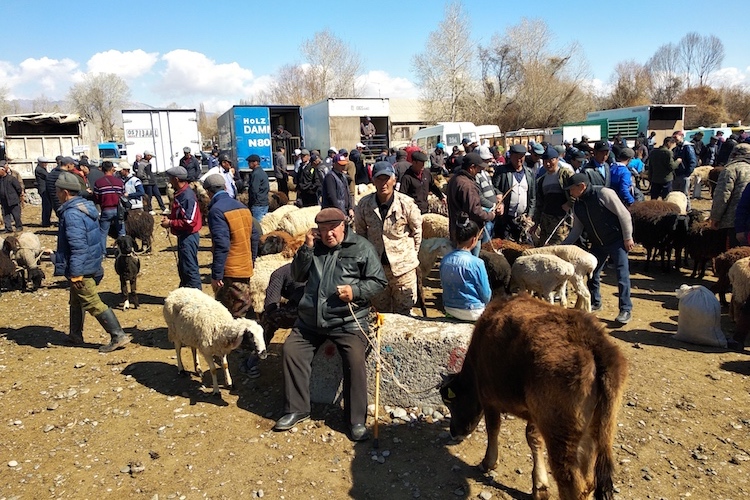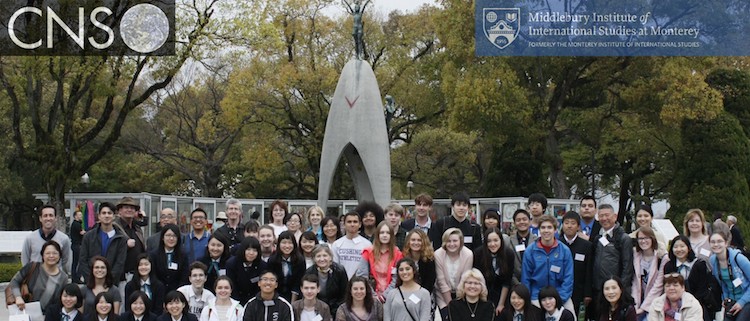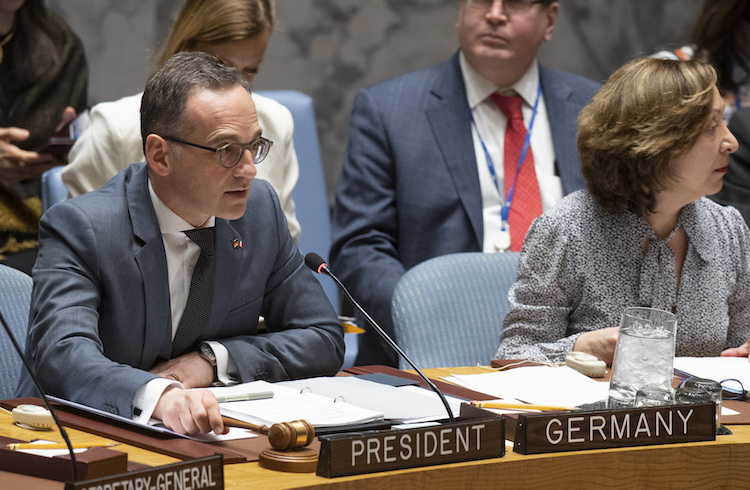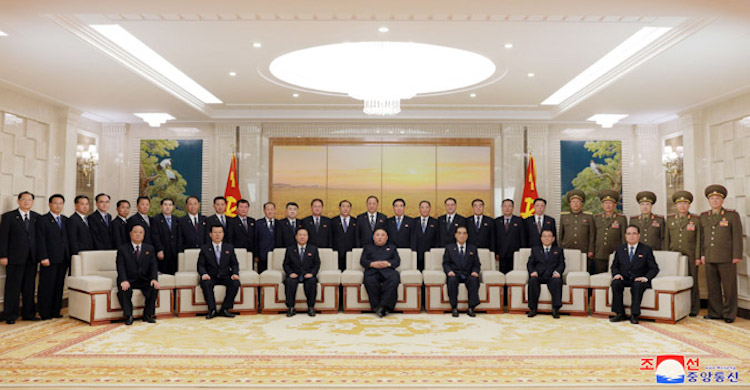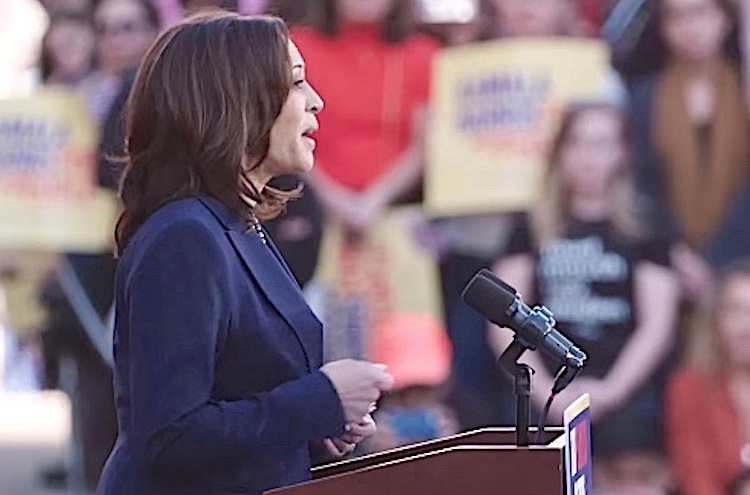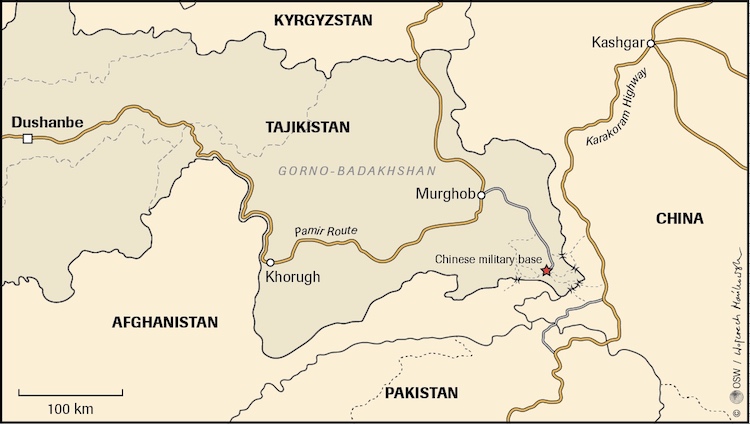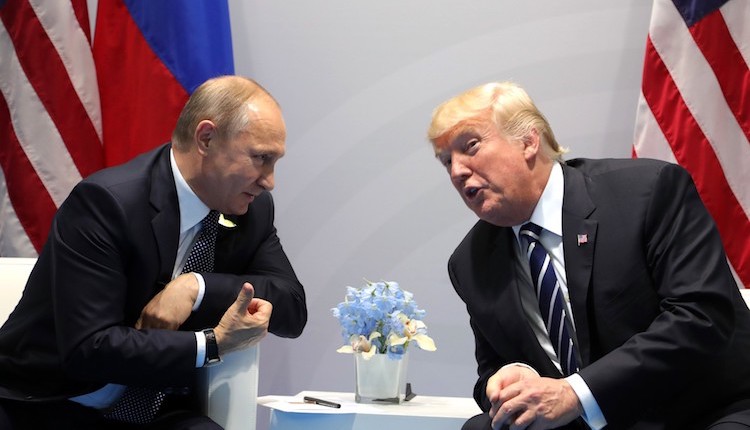By Kalinga Seneviratne AT-BASHY, Kyrgyzstan (IDN) – Separated by mountain ranges from the rest of the country, Naryn province in southeastern Kyrgyzstan lies at an altitude of between 1300 to 3000 meters. Sheep and cattle, raised on the extensive grasslands and alpine pastures, are the mainstay of the economy. While horses play an important role […]
High School Students’ Conference Stimulates Youth Engagement in Nuclear Disarmament
By Masako Toki* MONTEREY, CA, USA (IDN) – The global nuclear situation appears to be more dangerous than ever, and calls for innovative solutions and involvement of the young people. Much against the widespread belief that high school students are too young to be engaged in resolving issues related to nuclear disarmament and nonproliferation, the […]
UN Eager to Advance Commitment to Nuclear Non-Proliferation
By Jamshed Baruah NEW YORK (IDN) – Deeply concerned about the erosion of the disarmament and arms control framework that reaped significant post-cold-war-era gains, the United Nations is keen to ensure the continued viability of the landmark Treaty on the Non-Proliferation of Nuclear Weapons (NPT). With an eye on the fiftieth anniversary of the Treaty’s […]
North Korea Stays in Focus Amid Talk About Next Summits
By Kelsey Davenport and Alicia Sanders-Zakre* WASHINGTON, D.C. (IDN-INPS) – North Korean leader Kim Jong Un and U.S. President Donald Trump have both said they are willing to meet for a third summit but are looking for certain conditions to be met ahead of any meeting. Kim said the United States must be more flexible […]
Radio Connects a Kyrgyz Community with the World
By Kalinga Seneviratne SUUSAMYR, Kyrgyzstan (IDN) – Travelling on the new Silk Roads recently upgraded by the Chinese, one drives up through stunning mountains that are still covered by snow even as summer approaches. The road from Kyrgyzstan’s capital Bishkek climbs up to a peak of about 4.000 meters before descending over 1500 meters to […]
Call for Renewed U.S.-Russian Strategic Dialogue
By Daryl G. Kimball* WASHINGTON , D.C. (IDN-INPS) – In the latest in a series of expert conferences and dialogues in Moscow and Washington, a group of distinguished U.S. and Russian experts released a public statement calling on U.S. and Russian officials to get back to the arms control negotiating table, with the first order […]
Hookah Culture Invades Central Asia
By Milena Melnikova* NAYRN, Kyrgyzstan (IDN) – The culture of smoking hookah is becoming popular among young adults in the Central Asian countries of Kyrgyzstan, Kazakhstan and Tajikistan, because of its affordability as well as due to its being legal as a way to relax and get rid of the accumulated stress, in the absence […]
Democrats Lining Up to Try to Take on President Donald Trump
By Radwan Jakeem WASHINGTON, DC (IDN) – After months of speculation about who might run for president in 2020, the Democratic field appears to be set. That doesn’t mean there aren’t some stragglers who have yet to commit one way or another, but for all intents and purposes it appears we know who’s in the […]
China Thwarts India’s Central Asian Ambitions
By Micha’el Tanchum* TEL AVIV (IDN-INPS) – A recent investigation revealed that Chinese troops are stationed on Tajikistan’s south-eastern border, 30 kilometres from Pakistan-administered Kashmir across Afghanistan’s Wakhan corridor. India has unsuccessfully sought to establish its own military base in Tajikistan for over 15 years. The discovery of Chinese troops constitutes a severe setback to […]
Not Collusion with Russia but Trump’s Confrontational Policies Threaten Peace
Viewpoint by Jonathan Power LUND, Sweden (IDN-INPS) – President Donald Trump has been exonerated of collusion with Russia. As I wrote a while back, I expected this conclusion from the investigation carried out by Robert Mueller. The big clue lay in Trump’s anti-Russian posture. Trump has continued the expansion of NATO which Russia, more than […]

